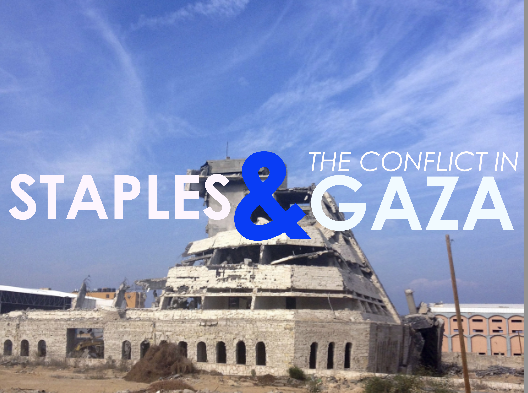
On Nov. 22, Hamas and Israel agreed to a truce ending eight days of violence and avoiding a full scale Israeli invasion. The truce was brokered due to pressure brought by the Obama administration and Egypt. In Gaza, the Palestinians held a parade to celebrate the news of the truce and considered it a victory for their side, while in Israel there seemed to be mixed feelings.
The father of Staples students Henri ’14 and Gabriella Rizack ’13 was in Israel as the conflict escalated. According to Henri Rizack, while his father was checking into his hotel sirens blared indicating it was time to go into a bomb shelter. After the siren went off, he had approximately thirty seconds to get to safety before a bomb would hit.
“My dad was really scared when the bomb hit because living in the United States we are spoiled with the feeling of always having a sense of security. While he was in Israel a bomb could hit at any time and potentially kill him,” Henry Rizack said.
Nevertheless, on the warfront the Staples community seems to support Israel.
“I am very pro-Israel. My overall opinion is that the situation is just another symptom of a much greater conflict between Israel and Iran,” said Co-President of the Model United Nations Doug Russ ’13.
Yael Dror ’15, however, is just relieved that a cease-fire has taken place. Dror has many family members currently living in the country.
“I am concerned for my family in Israel and that there would be an invasion in Gaza and many more soldiers would die. However, now that there is a cease fire, I’m not as worried,” Dror said.
According to Russ, in the Model United Nations Club they began running a simulation of the United Nations Security Council to address the conflict. They have been debating and composing resolutions outlining action the Security Council should take.
The Israeli Culture Club has also been discussing the matter. According to Co-President and Founder Rusty Schindler ’13, they have been trying to educate people on both the Israeli and Palestinian side.
“There’s not much we can do other than be as educated as possible on the subject and act as advocates for Israel,” Schindler said.
Many Americans and Israeli citizens hope the cease-fire will be lasting, however some think it is unlikely.
“Sadly, I do not think the ceasefire will last. Events since 2005, especially the crisis in 2009, point to continued conflict,” said Cathy Schager, a Middle East teacher.
However, Russ sees a positive.
“I was glad to see how up-to-date most Staples students were with the conflict, but like many other conflicts they are very far from home,” Russ said.













































